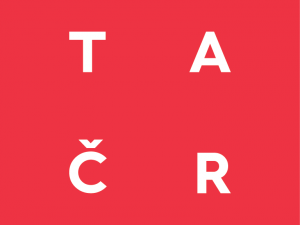| Sub-Project name: |
Automation and production system optimization |
| Work package: |
I. Robotics and Cybernetics for Industry/Society 4.0 |
| ID code: |
TN01000024/08 |
| Duration: |
01/2019 – 12/2022 |
| Principal investigator: |
doc. Ing. Radim Halama, Ph.D. (TUO VSB) |
| Participants: |
VSB – Technical University of Ostrava (VSB – TUO)
Institute of Thermomechanics of the Czech Academy of Sciences (IT CAS)
Continental Automotive Czech Republic s.r.o. (Continental)
TŘINECKÉ ŽELEZÁRNY, a.s.
Vitesco Technologies Czech Republic s.r.o. |
| Results: |
Automated visual quality inspection based on AI, Machine learning, Deep learning of Artificial Neural Network, R,2020
Software for automatic billet straightening machine, R, 2020
System for RFID identification of bar stocks, Gfunk, 2020
Device for marking metal bars, Gfunk, 2020
Library of codes for plasticity and creep models implementation, R, 2020
Equipment for measurement of billet curvature, Gfunk, 2021
Library of codes for plasticity models implementation, R, 2021
Review of methods for the post-processing of topological optimization results, O, 2021
Research report on comparison of SAC305 and SACX807 solder alloys, O, 2021+
Progress in automatic straightening of billets, O, 2022
Technical report on scene monitoring and big data evaluation for life cycle cost of equipment, O, 2022
Development and implementation of 3D geometry extraction method for topological optimization, O, 2022 |
Abstract:
Research activities with Vitesco are focused on development of the new innovative software of computer vision for visual detection of quality characteristics of manufactured parts based on visual inspection with implemented AI. The second important task is investigation of lead-free solders with regards to its application in QFN modules which are used in many electronic products. Trinecke zelezarny participates on the development of three innovative research results: software for the automatic billet straightening machine based on AI, system for RFID identification of bar stocks and the device for marking metal bars. The deliverables of the project will accelerate industrial application of 3D printed materials. The main benefits concern numerical modeling of elasto-plastic behavior of 3D printed materials, validation and calibration of these models, optimization of mechanical properties of 3D printed materials with respect to various parameters of the manufacture process, and development of testing procedures. All these items are essential to increase an efficiency of the additive manufacture technology.
 This project is supported by the Technology Agency of the Czech Republic within the programme National Centres of Competence 1: Support programme for applied research, experimental development and innovation.
This project is supported by the Technology Agency of the Czech Republic within the programme National Centres of Competence 1: Support programme for applied research, experimental development and innovation.
 This project is supported by the Technology Agency of the Czech Republic within the programme National Centres of Competence 1: Support programme for applied research, experimental development and innovation.
This project is supported by the Technology Agency of the Czech Republic within the programme National Centres of Competence 1: Support programme for applied research, experimental development and innovation.
